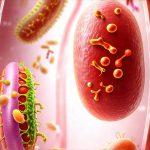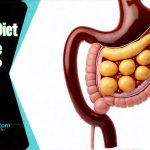The human body is remarkably adaptable, capable of weathering significant changes in lifestyle and diet. However, this adaptability has limits, particularly when subjected to frequent and drastic shifts in nutritional intake. In recent years, the proliferation of diet trends – keto, paleo, veganism, intermittent fasting, carnivore, and countless variations – has created an environment where cyclical dieting is commonplace. While individual diets may offer benefits for some, the constant transition between them can place undue stress on multiple bodily systems, including the digestive system, leading to a range of bathroom-related disruptions. This isn’t necessarily about any single diet being “bad,” but rather the inherent instability introduced by repeatedly asking your gut (and other organs) to readjust to fundamentally different fuel sources and processing demands.
This cyclical disruption extends beyond mere inconvenience; it can significantly impact overall well-being. The gastrointestinal tract is a complex ecosystem, reliant on a delicate balance of bacteria, enzymes, and motility. Frequent dietary changes destabilize this ecosystem, potentially leading to bloating, gas, constipation, diarrhea, altered bowel habits, and even long-term gut health issues. Furthermore, the psychological stress associated with restrictive dieting can exacerbate these physical symptoms, creating a vicious cycle where anxiety about digestion contributes to digestive problems themselves. Understanding why these disruptions occur and how to mitigate them is crucial for anyone navigating the ever-changing landscape of dietary trends. You might consider looking at signs from test results if you suspect your diet is causing issues.
The Gut Microbiome and Dietary Chaos
The gut microbiome – the trillions of bacteria, fungi, viruses, and other microorganisms residing in our digestive tract – plays a critical role in everything from nutrient absorption to immune function. Each diet promotes different types of microbial growth. For example, a high-fiber vegan diet fosters a thriving population of fiber-digesting bacteria, while a ketogenic diet dramatically reduces carbohydrate intake, potentially limiting the food source for these same microbes and favoring others. When you switch diets rapidly, you’re essentially forcing this ecosystem to undergo repeated upheavals.
This constant shifting doesn’t allow the microbiome to stabilize and establish a healthy balance. Imagine trying to build a garden by repeatedly planting different seeds – nothing gets a chance to truly take root and flourish. The result is often dysbiosis, an imbalance in the gut microbiota, which has been linked to a wide range of health problems beyond digestive issues. Symptoms associated with dysbiosis can include unpredictable bowel movements, increased bloating, nutrient deficiencies (due to impaired absorption), and even mood swings, as the gut microbiome influences brain function through the gut-brain axis. Understanding key takeaways from tracking your digestive health can be beneficial too.
The speed of these transitions also matters. A gradual shift toward a new dietary pattern allows the microbiome some time to adapt, but jumping from keto to vegan overnight is particularly disruptive. Furthermore, certain diets – those extremely restrictive or reliant on processed “diet” foods – may further exacerbate imbalances by limiting microbial diversity and introducing artificial ingredients that can negatively impact gut health. Prioritizing a diverse range of whole, unprocessed foods, even within the constraints of a specific diet, is crucial for supporting a healthier microbiome. Are you eating too many trigger foods at once may also contribute to issues.
The Role of Fiber and Its Fluctuating Intake
Fiber is arguably one of the most important dietary components affected by frequent transitions. Different diets emphasize different types of fiber (or eliminate it altogether). Keto drastically reduces fiber intake, while vegan diets are typically high in insoluble fiber. Paleo focuses on specific vegetable sources. This inconsistent intake creates chaos for the digestive system.
- Insoluble fiber adds bulk to stool and promotes regularity, but too much too quickly can cause bloating and gas.
- Soluble fiber dissolves in water, forming a gel-like substance that slows digestion and helps regulate blood sugar levels. A sudden increase in soluble fiber without adequate hydration can lead to constipation.
When you switch from a low-fiber diet (like keto) to a high-fiber diet, your gut bacteria haven’t had time to develop the necessary enzymes to efficiently digest the increased fiber load. This leads to fermentation within the colon, producing gas and causing discomfort. Conversely, reducing fiber intake abruptly can slow down bowel movements and contribute to constipation. Consistent fiber intake – even if it’s just moderate – is far more beneficial than sporadic surges and drops. It’s important to note that too many smoothies can also impact your fiber intake.
The Impact on Digestive Enzymes & Motility
Our bodies produce a variety of digestive enzymes designed to break down different macronutrients (proteins, carbohydrates, fats). Each diet demands a different enzymatic profile. A high-fat ketogenic diet requires increased production of lipase, while a carbohydrate-rich vegan diet necessitates higher levels of amylase. Repeatedly switching between these dietary patterns forces the pancreas to constantly adjust enzyme production, which can lead to fatigue and inefficiency over time.
Furthermore, motility – the movement of food through the digestive tract – is also affected. Certain diets (like those high in processed foods) can slow down motility, leading to constipation, while others (like those containing caffeine or spicy foods) can speed it up, potentially causing diarrhea. The constant shifting between these states disrupts the natural rhythm of digestion and can contribute to unpredictable bowel habits.
Consider this: when you’re on a keto diet, your digestive system is optimized for processing fats. Then, when switching to veganism, it needs to rapidly recalibrate to efficiently process carbohydrates and fiber. This rapid adjustment isn’t always smooth, and it can lead to bloating, gas, and other uncomfortable symptoms as the digestive system struggles to keep up.
Hydration & Electrolyte Imbalance
Often overlooked in discussions about dietary transitions is the critical role of hydration and electrolytes. Different diets have varying effects on fluid balance. Keto, for instance, has a natural diuretic effect, meaning it promotes water loss through increased urination. This can easily lead to dehydration if adequate fluids aren’t consumed. Vegan diets, while generally hydrating due to their high water content in fruits and vegetables, may also require careful attention to electrolyte intake (sodium, potassium, magnesium), which can be lower in plant-based diets.
When you switch between diets with drastically different hydration requirements, your body needs time to adjust its fluid balance. Failing to do so can exacerbate digestive symptoms. Dehydration contributes to constipation, while electrolyte imbalances can disrupt bowel function and lead to cramping or diarrhea. Staying adequately hydrated and replenishing electrolytes is especially important during dietary transitions. This might involve consciously increasing water intake, consuming electrolyte-rich foods (like bananas, spinach, and coconut water), or even considering an electrolyte supplement under the guidance of a healthcare professional. Signs from testing that show gut lining damage can also indicate underlying issues.
Ultimately, the bathroom disruptions caused by frequent diet transitions are often a sign that your digestive system – and your body as a whole – is struggling to keep up with the constant changes. Prioritizing a more stable and sustainable dietary approach, focusing on whole foods, and paying attention to hydration and electrolyte balance can significantly improve gut health and overall well-being. If you’re experiencing chronic issues, a 7-day GERD diet plan could provide some relief.


















